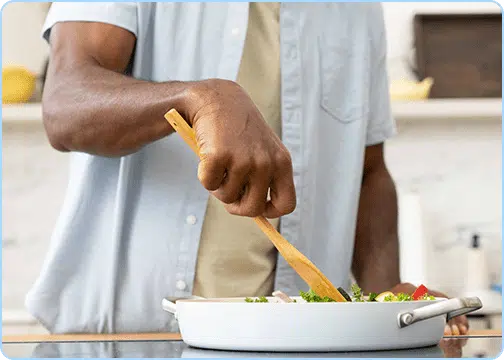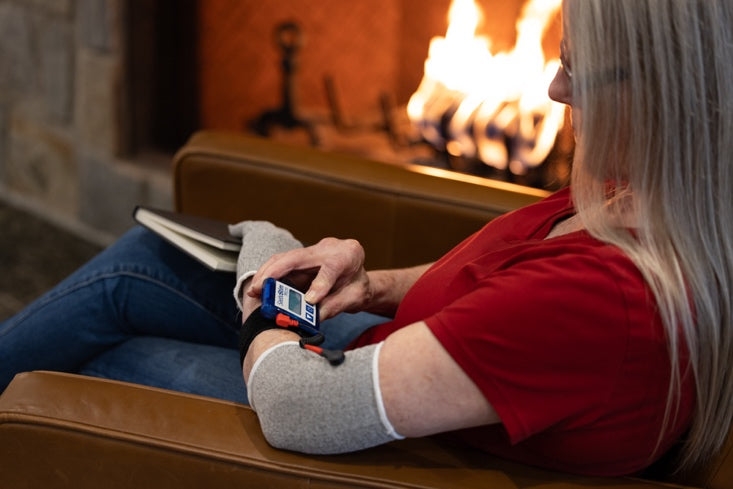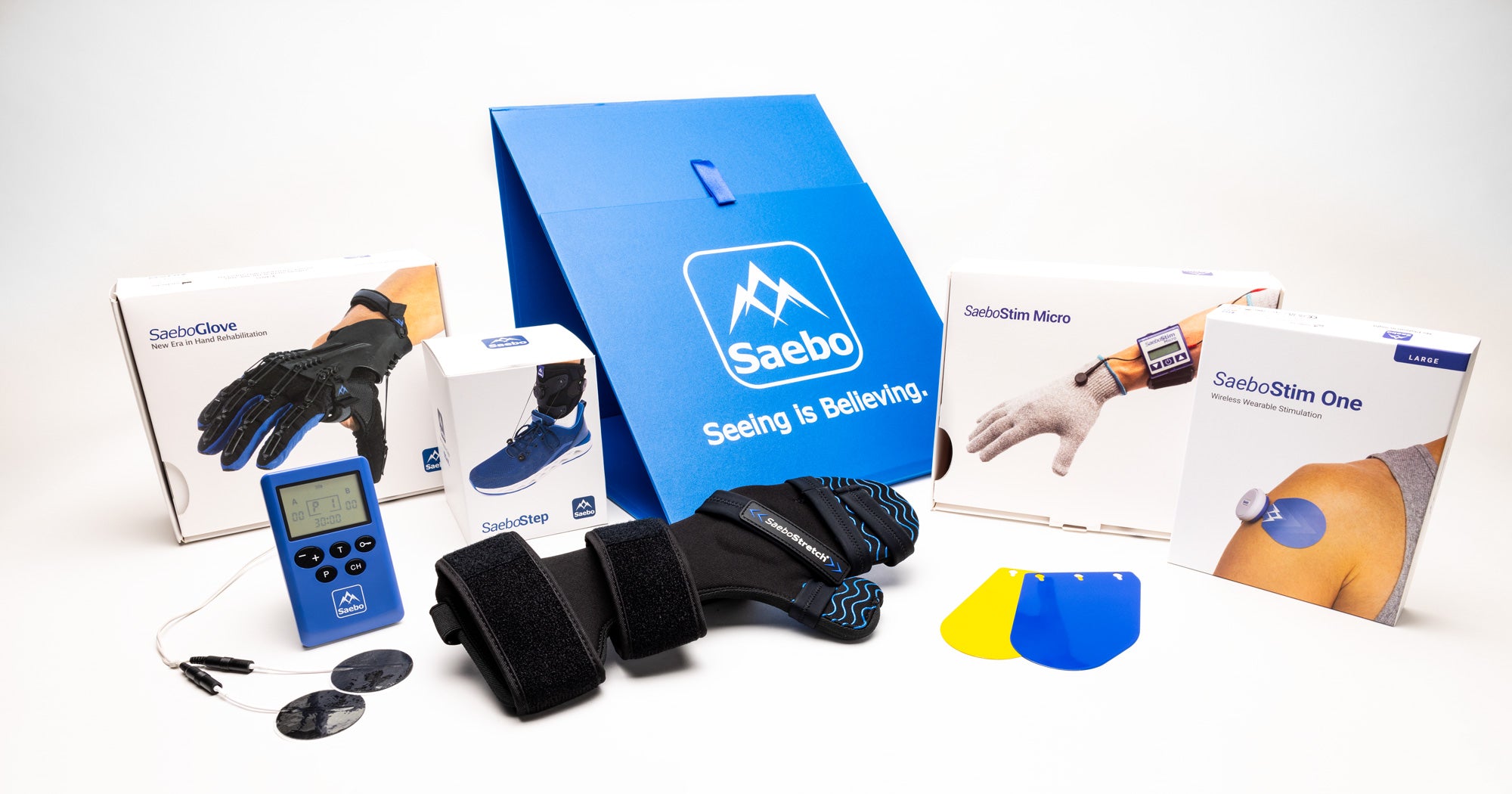
OT Month Spotlight: Gina Kim, MOT, OTR/L, CBIS, Where is She Now?
We caught up with Kim to talk about how her previous experiences shaped her current role as an occupational therapist at Johns Hopkins Hospital (see part one of her story here).
What was it about your OT journey that led you to the type of work you are doing now?
For one of my level I fieldwork rotations, I was assigned to an outpatient neuro rehab program at Cardinal Hill Rehabilitation Hospital in Lexington, KY. I learned that the brain is an incredibly resilient organ; the more I learned about it, the more fascinated I became. The intricacies and framework used in neuro recovery is what really deepened my love for OT. Eventually, I became the Lead Occupational Therapist at Centre for Neuro Skills (CNS), which is a post-acute outpatient brain injury program. We emphasized the need to provide holistic care using an interdisciplinary team approach.
Through my role at CNS, I thought it was important to establish relationships with therapists, counselors, physiatrists, optometrists, and other members of the neuro rehab team. I took a particular interest in neuro-optometric rehabilitation (NOR) and made it a point to better understand the visual system, screening and treatment procedures, and clinical presentations. One of the neuro-optometrists who provided mentorship nominated me to be on the advisory board for the Neuro-Optometric Rehabilitation Association. I will always be grateful for his guidance and support.
My experiences have further deepened my love and my passion for NOR, which is considered a niche within a niche. I realize our patients and their family members are relying on us to help them better understand the complexities of the neuro rehab process. In my new role at Johns Hopkins, I am committed to providing education about visual dysfunctions and functional implications following a neurological event. I am incredibly grateful and excited to have the opportunity to develop the NOR program within the Physical Medicine and Rehabilitation department; as well as emphasizing the benefits of referring out to neuro-optometrists to further promote interdisciplinary collaboration. I am surrounded by other driven healthcare professionals who recognize the importance and need for continued advocacy, education, and research and development.
How does interdisciplinary work fit into your role at Johns Hopkins?
The Sheikh Khalifa Stroke Institute (SKSI) is a specialty program that encourages interdisciplinary care. I joined the team as the Neuro OT Clinical Specialist around the same time my PT and speech therapist counterparts were added to the team. The three of us have been working diligently with the SKSI leadership team to facilitate neuro rounds (interdisciplinary team meetings), identify best practices, ensure consistency with functional outcome measures, create patient education resources, and develop other programmatic enhancements. In May, Johns Hopkins Departments of Neurology and Physical Medicine and Rehabilitation is hosting a two-day conference. The aim of this conference is to bring together leading scientists, researchers, and interdisciplinary clinicians for a rigorous review of the state of the science and future innovations.
How does neuro rehab differ from other methods of rehabilitation?
The research behind neuroplasticity is relatively new. When I was young, I often heard, “Don’t bump your head because once you damage your brain cells, you won’t get them back!” It wasn’t until recent decades that the concept of neuroplasticity has been better understood and accepted. Now, there’s evidence of synaptogenesis and rerouting of neuropathways. I think the concept of neuroplasticity gives rise to hope. I want survivors to feel empowered to be hopeful of making improvements with motor, visual, and cognitive skills; to rebuild a new sense of normal and reclaim some aspects of their functional independence. It’s exciting to see more research and advocacy for this field. Treatment programming requires individualized care plans, because each individual has unique needs and goals. We are realizing that we need to think about gut health, stress and anxiety levels, sleep patterns, and exercise routines.
Additionally, we have to take a look at social supports, scheduling, transportation, insurance, and access. It is our goal to work through barriers to provide the best quality healthcare services to help our patients and community, both locally and internationally. A memorable patient of mine often said, “You can shock the world;” a testament of the hope and drive that could be brought into existence.
How has your career outlook changed since working at Johns Hopkins?
My passion for neuro rehab has potentiated. I feel an intensified fire and drive to serve our patients who are recovering from a traumatic brain injury or stroke. It’s a rewarding place to work at because there are so many opportunities for collaboration – I have been able to connect and collaborate with physicians, neuropsychologists, neurologists, registered dieticians, neuro-ophthalmologists, and neuro-optometrists. We are very invested in serving our patients. Our goal is to be the center of excellence, driven by research and education.
What are your tips for other OTs trying to integrate a holistic approach into their practice?
We can do well on our own, but there is greater power and potential when we can effectively communicate and operate in synchronization with patients, families, and other healthcare professionals. My advice would be to keep talking to one another, push boundaries, stay curious and ask questions. Identify ways to treat the patient that’s salient, specific, and meaningful to them. Over communication is one of the things that will drive success, especially in neuro recovery.
What sets you up for success each day as an OT?
I have an honest passion for helping other people; I don’t want to do the bare minimum, so I often think, “what else can I do?” It’s no surprise to see several others who are also overachievers at Johns Hopkins! I have so much respect for my colleagues because I see that they go out of their way to make sure that they're offering excellent care both directly and indirectly with patients. We all try to problem-solve with the patients and families to ensure carryover and generalization of skills. We are constantly considering their current level of performance, their goals, and anticipated discharge plans. Life doesn’t stop after therapy, life IS therapy. We are actively laying down foundational skills and supports to promote more success for our patients.
I don’t see it as a typical 9-5 job. To me, it’s more about connecting with the patients – I feel their emotions and try my best to understand their concerns; I want to help my patients work through the challenging times and celebrate their successes! We recognize how catastrophic these changes can be – it’s incredibly frightening when dealing with something that’s unfamiliar. I feel responsible for providing education and resources to help patients and caregivers manage their health and recovery.
How do you instill hope in patients who feel discouraged after a stroke?
It has been so rewarding to allow people to tell their story and highlight the things that they think are important in their life and recovery process. One of the things I’ve recognized is that fear comes from the unknown. Generally speaking, being properly informed helps to prepare your mind and heart for what’s to come. Often times, patients become tearful when expressing concerns about changing roles – some express fear and brokenness from a lost sense of self. One patient expressed she was once the bread winner of the family, but now is unable to work. Another mentioned he struggles with having to request assistance from his family members for simple tasks, such as getting dressed every day. It is incredibly important to evaluate and process these emotions.
I often ask patients to give themselves grace through this process because the internal stress will create challenges with focusing on the recovery process, both psychoemotionally and physiologically. It's a very complex arena to be in, but also very rewarding for that same fact. Considering the principles that drive neuroplastic change, I often encourage my patients to wake up thinking about what COULD be done each day.
Kim, an avid runner and athlete, enjoys staying active with friends and colleagues by participating in runs (BayBridge 10k, trail runs, etc), duathlons, white water rafting, and DIY classes.
All content provided on this blog is for informational purposes only and is not intended to be a substitute for professional medical advice, diagnosis, or treatment. Always seek the advice of your physician or other qualified health providers with any questions you may have regarding a medical condition. If you think you may have a medical emergency, call your doctor or 911 immediately. Reliance on any information provided by the Saebo website is solely at your own risk.








